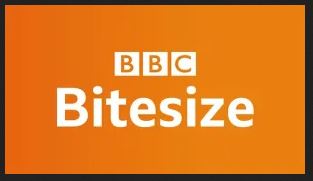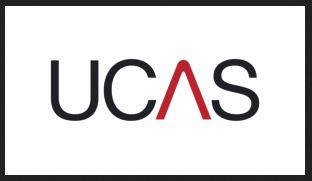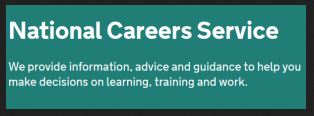Welcome to Millom School’s careers information for students. This page has been created to provide you with the key information we feel you need to make informed choices about your future. We want you to choose progression routes that are suited to your skills and talents and that will lead to you confidently entering the modern workplace equipped with the knowledge and skills for success.
Useful websites (Press on the logos)



.JPG)




Information about progression pathways
You have to make key choices concerning your future in Year 8, Year 9, Year 11 and Year 13. In each stage of education, you need to think about what you would like to do next. If you have a particular career in mind then it is important that you look at the end points i.e. what qualifications and skills you need. If you’re unsure about what you’d like to do at the next stage it’s absolutely fine but it’s important to keep your options open! You also need to make sure that you have fully researched your choices so that you are making an informed decision and that your choices are aspirational but also realistic and achievable.
| Year 8 | Decide if you’d prefer to stay on at school or whether you’d prefer to pursue technical education at a University Technical College (UTC) or Studio School. This would mean leaving school and completing KS4 options at a different school. |
| Year 9 | Choose your KS4 options, which will be primarily GCSE subject choices but may also include vocational qualifications like BTECs and Cambridge Technicals. Make sure that your KS4 choices will allow you to access your chosen pathway at ages 16-18. |
| Year 11 | Choose your 16-18 options, which may be A levels, vocational qualifications, a mixture of both, or an apprenticeship. Make sure that your 16-18 choices will allow you to access your chosen pathway when you leave education or employment with training. |
| Year 13 | Apply for university, further education, apprenticeship or employment. |
Between the ages of 16-18 it is important that you are either in full time education or are in full time employment with training (apprenticeship). It’s not ok to not have a positive destination and you should check that any employment opportunities you are offered at 16 have a training element with an approved training provider.
Information about Level 3 education (A levels and vocational qualifications)
Level 3 education comprises the courses you might pursue when you finish Year 11. Most students in Year 11 who opt to remain in education will follow one of the following pathways:
- 3-4 A levels
- 3-4 vocational courses
- A mixture of A levels and vocational courses
These courses are offered by a range of local providers including colleges of further education, sixth form colleges and school sixth forms, including:
Millom School 6th Form https://millom.cumbria.sch.uk/index.php/information-policies/sixth-form/?role=student-menu
Ulverston Victoria High School 6th Form https://www.uvhs.uk/sixth-form
West Lakes Academy 6th Form http://www.westlakesacademy.org.uk/post-16/
Barrow 6th Form College / Furness College https://www.furness.ac.uk/
The Lakes College https://www.lcwc.ac.uk/
Kendal College https://kendal.ac.uk/
Lancaster and Morecambe College https://www.lmc.ac.uk/
Newton Rigg https://www.newtonrigg.ac.uk/
Myerscough https://www.myerscough.ac.uk/
You can complete Level 3 qualifications in a wide range of subject areas. Students who complete Level 3 qualifications go on to university, higher apprenticeships, higher national diplomas or employment.
Vocational courses are equivalent to A levels in that they carry the same number of UCAS points when applying for university. However, most vocational courses still have elements of coursework, whereas nowadays many A level courses do not (and are purely examined at the end of 2 years of study). Vocational courses include BTECs and Cambridge Technicals. They may be offered as a single qualification (worth 1 A level), a double qualification (worth 2 A levels) or a triple qualification (worth 3 A levels). A student who had a particular interest in a specific vocational route might choose the triple option, for example, engineering, creative media, public services, applied science, sport.
Information about apprenticeships
An apprenticeship is a way of working whilst studying and learning new skills. They are an ideal option for students who want to earn as they learn and who know the type of career pathway they wish to follow.
There are no fees for apprenticeships, as the training costs are met by the employer and the government.
There are different types of apprenticeships, each type has different entry criteria and may have age limitations:
- • Intermediate apprenticeships (Level 2, broadly equivalent to 5 GCSE level passes, suitable for students aged 16)
- • Advanced apprenticeships (Level 3, broadly equivalent to 2 A level passes, suitable for students aged 16, 17 or 18)
- • Higher apprenticeships (Level 4 and beyond)
- • Degree level apprenticeships (Levels 5-7)
Entry criteria for intermediate apprenticeships vary but most employers ask for 2 or more GCSEs. If you do not have maths or English GCSE, then you are required to re-sit these qualifications alongside the apprenticeship.
Entry criteria for advanced apprenticeships also vary but most employers require 5 or more GCSEs at grades 4-9, including maths and English. Some pupils are successful with applying for advanced apprenticeships at 16. Some pupils complete Level 3 study at 6th form or college first and then apply for an advanced apprenticeship at the age of 18 upon successful completion of their Level 3 qualifications.
Higher apprenticeships usually involve the apprentice completing a foundation degree or Higher National Diploma (HND) so the entry criteria for these apprenticeships are usually higher and employers expect successful candidates to have Level 3 qualifications. Therefore most students who apply for these apprenticeships are aged 18 or over. Degree apprenticeships are similar to higher apprenticeships but allow the candidate to progress onto achieving a full Bachelor’s or Master’s degree, equivalent to study at higher education level, but often the employer pays the tuition fees at least in part if not in full.
Apprenticeships are available in many sectors of industry, offered by large and small companies. You may apply for apprenticeships directly with a company, via a training provider (for example Gen 2, Taylor Made Training) or through an FE college like Furness College, the Lakes College or Kendal College.
Apprenticeships are competitive and the selection process may be understandably rigorous. You usually have to submit an application form and attend a formal interview, but you may also be invited to attend a selection day where you have to complete a variety of tasks including team activities. You may also be required to take some form of psychometric test.
For students applying for apprenticeships, Millom School recommends the following:
- • Research the employer thoroughly
- • Understand the terms and conditions of the employment including pay, holidays, sick leave
- • Check whether or not successful completion of the apprenticeship leads to full time employment with the company
- • Check the level of apprenticeship and associated entry criteria
- • Check the apprenticeship is supported by an approved training provider
- • Check opportunities to re-sit GCSE maths and English if the qualification have not been achieved at grade 4+
- • Check the level of apprenticeship and progression route, for example, does the advanced apprenticeship allow automatic progression to the degree apprenticeship?
- • Ensure deadlines for applications are met
- • Have a teacher check the application and personal statement
- • Apply for alternatives in case applications are unsuccessful
- • Take opportunities offered by school (and outside of school) to improve the CV, as apprenticeships are highly competitive and candidates need to stand out
You can access information about apprenticeships in the following ways:
- • Assemblies and talks by employers and training providers
- • Opportunities to attend events such as careers fairs, SkillsFest and Copeland Skills Fair
- • Attending training provider open days
- • Personal development lessons
- • Through the curriculum where class teachers link lessons to apprenticeship options
- • Discussions with the Inspira careers adviser
- • Discussions with form tutor and the director of learning for KS5
- • Year 11 options talks and interviews
- • Hello Future workshops and mentoring
- • Accessing the Unifrog search platform, which includes apprenticeship vacancies
- • Support for applications and personal statements
- • Support for interviews
Information about university
The website https://www.thecompleteuniversityguide.co.uk/ is a good place to start. Here you can find information about applying via UCAS (Universities and Colleges Admissions Service), information about fees, access open day events and research league tables.
Most students upon leaving 6th form or college will opt for an undergraduate degree course at Bachelor’s level. These are usually 3 years, but some courses offer a sandwich year, a year abroad or an industrial placement year, taking their total length to 4 years. Some undergraduate degrees are 4 years because they automatically have progression to a Master’s level course. However, most students apply for a Bachelor’s undergraduate degree and then have the option to pursue a postgraduate degree (Master’s or PhD) after that, or enter employment or a graduate training programme.
It is a misconception that students must have A level qualifications to apply for university. Most universities, including Russell Group universities (24 leading UK universities), will accept a mixture of A level and vocational qualifications (e.g. BTECs or Cambridge Technicals) for most courses. Some universities will accept vocational qualifications on their own. Some universities (e.g. Oxford and Cambridge) and some courses (e.g. medicine, veterinary and dentistry) do not accept vocational qualifications as alternatives to A levels so it is important that you check this during the Year 11 options process.
The UCAS website has a most useful search tool where you can easily find information about undergraduate and postgraduate degrees at UK universities. This will list key information about the course, about the university and tell you the entry requirements. You may, however, find your Unifrog account to be a more user-friendly platform. As you will know from PD lessons, this website allows you to highlight preferences, filter university searches based on particular criteria, compare courses and save your choices. It also allows school staff to interact with your choices so teachers can check that your progression pathways are appropriate and realistic.
You will apply to university via the UCAS website at the start of Year 13. The deadline is generally the following January, however, Millom School strongly recommend that applications are submitted by the end of the November, so that offers can be received earlier. You need to pay for your application, which is currently £24. You submit 5 choices. You will need to provide personal and academic information and you will also submit a personal statement up to 4000 characters in length (including spaces). Millom School provide a personalised reference for you, which gives your predicted grades for each subject, a comment about the your skill set and ability in that subject and an overall comment about your character and aspirations.
As you write only one personal statement and receive only one reference, we recommend that your 5 choices are suitably similar, otherwise it would be difficult to justify reasons for applying. For example, you should not apply for a law degree and a nursing degree on the same application, as the subjects and skills are too different, therefore it is likely that the application would not pass the university admissions teams and be rejected.
You can access information about university in the following ways:
- • Assemblies and talks by higher education providers
- • Small group workshops e.g. those delivered by the Universities of Oxford and Cambridge
- • A huge range of paper prospectuses accessible via the School Library
- • Opportunities to attend events such as careers fairs, SkillsFest, UCAS HE exhibition
- • Trips to universities
- • Applying for master classes and summer schools
- • Attending open days
- • Personal development lessons
- • Through the curriculum where class teachers link lessons to higher education options
- • Discussions with the Inspira careers adviser
- • Discussions with form tutor and the director of learning for KS5
- • Year 11 options talks and interviews
- • Hello Future workshops and mentoring
- • Accessing higher level learning materials such as projects and reading lists devised by university staff
- • Accessing the Unifrog search platform
- • Accessing the UCAS website
- • Support for UCAS applications and personal statements
- • Support for interviews
Your parents and carers may have some concerns about the costs of supporting you through university. This government website has information about student loans in England and how to apply for them: https://www.gov.uk/student-finance but the Universities and Colleges Admissions Service (UCAS) also has helpful information about student finance https://www.ucas.com/sfe. The Student Loans Company https://www.slc.co.uk/students-and-customers/students-from-england.aspx may also provide further information.
Information about technical education
University Technical Colleges (UTCs) and Studio Schools are both types of free school, meaning that they’re funded by the government but aren’t run by the local council and don’t have to follow the national curriculum. Generally, these are schools for 14-19 year olds, so in Year 9 you could opt to pursue Key Stage 4 options at a different school.
Pupils in UTCs specialise in subjects like engineering and construction and learn about subjects like business and IT alongside. Pupils may study a range of academic and practical subjects leading to gaining a technical qualification. The curriculum is designed by the university and employers who also provide work experience. The nearest UTC to Millom is the Energy Coast UTC near Workington.
Studio Schools are small schools that teach mainstream qualifications through project-based learning. Students may work with employers and a personal coach and follow a curriculum designed to allow them to pursue employment or further education. The nearest Studio School to Millom is the Queen Elizabeth Studio School in Kirby Lonsdale, which is for students aged 14-18.
T Levels are new technical courses for 16 year olds that are coming in September 2020. If you started Year 10 in September 2018 you will be the first cohort able to study them. They are 2-year courses that are equivalent to 3 A Levels that are specifically designed to prepare you for work and meet the needs of UK industries. So you would study a single T Level. They are not designed to be taken alongside A Levels or equivalent vocational qualifications but rather are a choice for students instead of more traditional programmes of study.
T Levels offer you a mixture of learning in the classroom and work experience of approximately 45 days duration. They will be based on the same standards as apprenticeships, have been designed by employers are have been approved by the Institute for Apprenticeships and Technical Education. The first T Level courses available will be in: digital production, design and development; design, surveying and planning; and education. There are some providers in the North West of England who will be offering T Levels in September 2020, however, there are currently no providers in Cumbria.
Work experience
All students in Years 10 and 12 will plan, attend and evaluate a week’s work experience with an employer of their choosing. You are given support during PD lessons to identify and contact a suitable employer. School then work with an external risk assessment company to confirm your place. Year 10 students usually go out on work experience in February and Year 12 the last week of the summer term, during the school’s Activity Week.
See the documents section below to download copies of information and forms that you might need.
(more documents to include in this section will follow!)
Mock interviews
In November all students in Year 11 will have a mock interview with a local employer. You come to school dressed in professional workwear and experience what it’s like to have a job interview. You will already have completed a unit of work on applying for jobs and will have studied interview technique in personal development lessons. If you tell us your intended progression path, we try to match you up with a relevant employer. Your interview will last 15-20 minutes and you will receive brief verbal feedback at the end. The employer also gives you written feedback, which you will use in PD lessons to evaluate your experience and create an action plan to improve. Employers who have supported us in the past include: Sellafield, BAE, Tornado Wire, NHS, Kimberly Clark, PPM, Copeland Borough Council, Cumbria County Council, Department for Work and Pensions, UCLAN, GSK, Edge Hill University, Saint and Co, the Army and Newton Rigg.
Building your CV
There are lots of opportunities in school that allow you to develop and showcase a range of skills important to employers. This includes: teamwork, leadership, communication, confidence, motivation, determination. During job applications and interviews it is essential that you can demonstrate how you’ve developed these skills during your time at school and can give examples. School provide you with extra-curricular opportunities in sport, music, drama, art and STEM to name but a few, but there are also extra opportunities for you to participate in meaningful activities that will develop your employability skills/
NCS is the National Citizen Service, an exciting programme of activities for 16 and 17 year olds. It is subsidised heavily by the government so it only costs £50 and bursaries are also available. The NCS programme is divided into 3 key stages including a residential programme of adventurous activities, a residential crash course in life skills and a community project, and then culminates in a party. NCS will allow you to develop important skills for employment including teamwork, independence, confidence and communication. You can find out more, including a NCS live chat facility on their website https://wearencs.com/
Millom School also offer the Duke of Edinburgh Award scheme to students in Year 9 and above. It is possible to complete your bronze and silver awards. The Duke of Edinburgh Award includes a planning and going on a challenging expedition with camping and long term projects on helping the community or environment and developing a new skill. This programme will allow you to develop important skills for employment including teamwork, independence, organisation and communication. Go to the DofE website to find out more https://www.dofe.org/
We encourage students in Years 12 and 13 to apply for Dream Placement, which is a leadership development programme unique to Cumbria resulting in a week’s placement in industry. This is a fantastic opportunity to experience leadership in action and connect with employers in important local businesses. Applications can be accessed via the website https://dreamplacement.org.uk/